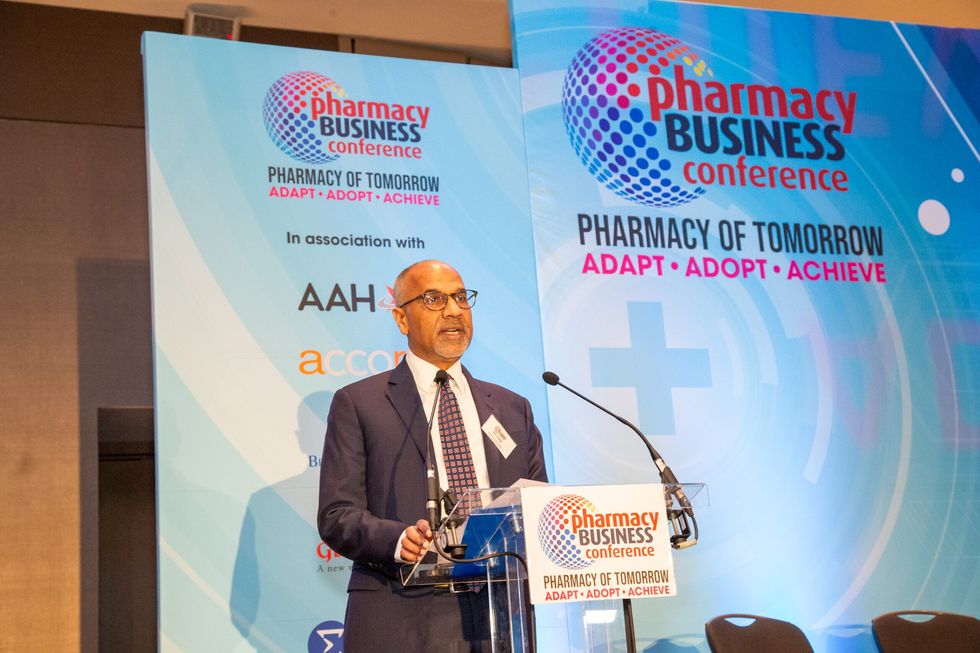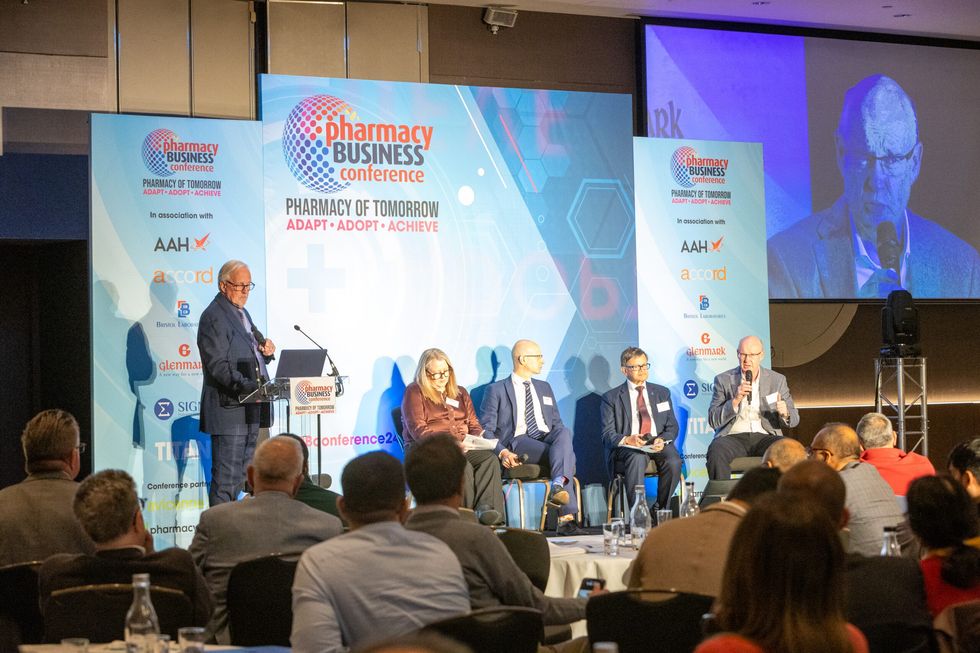THE chief pharmaceutical officer for England, David Webb, has welcomed the expansion of clinical services offered by community pharmacies as he addressed the annual Pharmacy Business Conference last weekend.
With “pharmacies providing 93,000 consultations in the inaugural month of the groundbreaking launch of the Pharmacy First service,” Webb praised the accomplishment as “a testament to the dedication and diligence of community pharmacists”.
His comments came at last Sunday’s (28) Pharmacy Business event in north London, hosted by the Asian Media Group (AMG), publishers of Eastern Eye and Garavi Gujarat news weeklies.
Hosted by Pharmacy Business, a sister publication of Eastern Eye and Garavi Gujarat, this year’s conference theme was ‘Pharmacy of Tomorrow’. It marked the eighth anniversary of the event.
Webb, the opening keynote speaker at the conference, addressed guests via a video message about the advantages of the expansion of pharmacy services.
He outlined plans to broaden the scope of the services, which aim to enhance accessibility and choice for patients across England, and reduce the pressure on GP surgeries currently dealing with appointment backlogs.

Following the success of Pharmacy First services launched early this year, he said community pharmacies play “increasingly important clinical roles in both primary and secondary care”. The consultation service enables patients to be referred to community pharmacies for a minor illness or an urgent repeat medicine supply.
Among the seven conditions are sore throat, impetigo sinusitis and urinary tract infection.
Webb emphasised the clinical services offered by community pharmacies by bringing these essential services closer to patients’ doorsteps. He noted that “80 per cent of people in England live within a 20-minute walk of a community pharmacy”.
This expansion not only improves convenience for patients, but also empowers them to take proactive steps towards better health, Webb told the conference.
Another speaker at the conference, Janet Morrison, the chief executive officer of Community Pharmacy England (CPE), agreed with Webb about the success of Pharmacy First Services.
She dwelt on the importance of pitching solutions to policymakers while securing sustainable investments for the sector.
“Pharmacy First represents an opportunity for pharmacists to utilise their capabilities as independent prescribers, offering accessible healthcare support through services like EHC [Emergency Hormonal Contraception],” Morrison said.
She added that “despite implementation challenges, Pharmacy First underpins interoperability within primary care systems and NHS-wide records, marking an important step forward. Our polling data shows optimism and positivity among pharmacists, recognising Pharmacy First as a sign of recognition of the capability of community pharmacy.”
Morrison outlined the challenges in the sector. She noted that while the government announced £645 million for pharmacy common conditions service, dispensing volumes have increased by 11 per cent over the past five years, but margins have declined.
She said this deficit in funds was making it difficult for pharmacies to operate sustainably and to support the growing clinical services role envisioned for community pharmacy under current levels of funding.

“There’s not enough buffer for the peaks and troughs that we’re getting in prices. We need to put the value for quantum and also the back-up mechanism for legitimisation,” she said.
“We know the current contract is insufficient for the growing component of dispensing with duty,” Morrison added, referring to ongoing negotiations about the community pharmacy contractual framework for 2024-2025 with the government and the NHS.
Shailesh Solanki, the editor of Pharmacy Business, said: “The funding model requires a complete overhaul.”
He said mounting losses were the result of years of chronic under funding in the sector and added that pharmacy finances were in a perilous state.
“It is estimated that in real terms, pharmacy funding has fallen over 30 per cent over the past five years,” Solanki said.
He added, “The current contractual framework and an unjust reimbursement system means pharmacies are frequently dispensing medicines at a loss. The situation is clearly untenable.”
Community pharmacist Reena Barai paid tribute to AMG cofounders, husband and wife Ramniklal and Parvatiben Solanki, who passed away a few years ago.
Barai said, “I’ve never been to a conference where an Asian woman has chaired it. I wanted to show that it can be done and I’m hoping I did just that.
“I felt like I harnessed the power of Asian women like Parvatiben who’ve gone before me silently, but I channelled it loudly. I’m a big believer of ‘you can’t be what you can’t see’. I’m hoping women in the audience, particularly women of colour, felt they could chair a conference now too.”




















